Computer Engineering
Computer engineering is a branch of engineering that integrates several fields of computer science and electronic engineering to develop computer hardware and software. It involves the design, development, and testing of computer systems and components such as processors, memory devices, and communication interfaces.
Key Concepts
- Hardware Design: Understanding the principles of digital logic, microprocessor design, and computer architecture.
- Software Development: Learning programming languages, algorithms, and software engineering principles.
- Embedded Systems: Exploring the design and implementation of computing systems embedded in other devices.
- Networks and Communication: Studying the principles of data communication, network protocols, and distributed systems.
- Computer Systems Integration: Understanding how hardware and software components work together to form complete systems.
Study Guide
Here are some key topics to focus on when studying computer engineering:
- Digital Logic: Understand the basics of Boolean algebra, logic gates, and digital circuits.
- Computer Architecture: Learn about CPU design, memory hierarchy, and input/output systems.
- Programming Languages: Gain proficiency in languages like C, C++, Java, and Python.
- Data Structures and Algorithms: Master fundamental data structures and algorithms used in software development.
- Embedded Systems Design: Explore the development of embedded software and interfacing with hardware components.
- Networking Fundamentals: Understand the principles of networking, including TCP/IP, LANs, WANs, and wireless communication.
- Computer System Design: Study how to integrate hardware and software components to build functional computer systems.
Additionally, practical experience through internships, projects, and hands-on experimentation with hardware and software can greatly enhance understanding in computer engineering.
By mastering these concepts and topics, students can develop a strong foundation in computer engineering and prepare for a successful career in this exciting field.
.◂Science Worksheets and Study Guides Seventh Grade. Cell Reproduction
Study Guide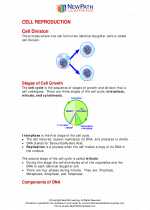 Cell Reproduction
Cell Reproduction  Activity Lesson
Activity Lesson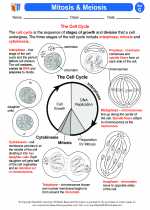 Mitosis & Meiosis
Mitosis & Meiosis  Worksheet/Answer key
Worksheet/Answer key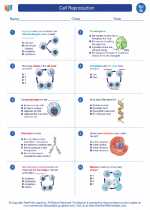 Cell Reproduction
Cell Reproduction  Worksheet/Answer key
Worksheet/Answer key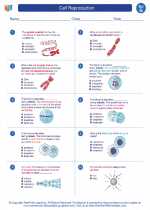 Cell Reproduction
Cell Reproduction  Worksheet/Answer key
Worksheet/Answer key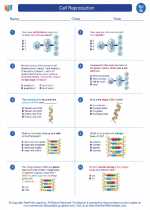 Cell Reproduction
Cell Reproduction  Vocabulary/Answer key
Vocabulary/Answer key Cell Reproduction
Cell Reproduction  Vocabulary/Answer key
Vocabulary/Answer key Cell Reproduction
Cell Reproduction  Vocabulary/Answer key
Vocabulary/Answer key Cell Reproduction
Cell Reproduction  Vocabulary/Answer key
Vocabulary/Answer key Cell Reproduction
Cell Reproduction  Vocabulary/Answer key
Vocabulary/Answer key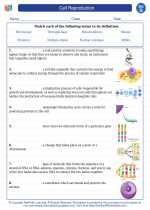 Cell Reproduction
Cell Reproduction  Vocabulary/Answer key
Vocabulary/Answer key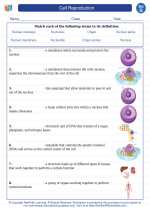 Cell Reproduction
Cell Reproduction  Vocabulary/Answer key
Vocabulary/Answer key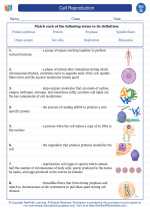 Cell Reproduction
Cell Reproduction  Vocabulary/Answer key
Vocabulary/Answer key Cell Reproduction
Cell Reproduction 

 Activity Lesson
Activity Lesson
 Worksheet/Answer key
Worksheet/Answer key
 Worksheet/Answer key
Worksheet/Answer key
 Worksheet/Answer key
Worksheet/Answer key
 Vocabulary/Answer key
Vocabulary/Answer key
 Vocabulary/Answer key
Vocabulary/Answer key
 Vocabulary/Answer key
Vocabulary/Answer key
 Vocabulary/Answer key
Vocabulary/Answer key
 Vocabulary/Answer key
Vocabulary/Answer key
 Vocabulary/Answer key
Vocabulary/Answer key
 Vocabulary/Answer key
Vocabulary/Answer key
 Vocabulary/Answer key
Vocabulary/Answer key

The resources above cover the following skills:
LIFE SCIENCE
From Molecules to Organisms: Structures and Processes
Gather and synthesize information to explain how prokaryotic and eukaryotic cells differ in structure and function, including the methods of asexual and sexual reproduction.